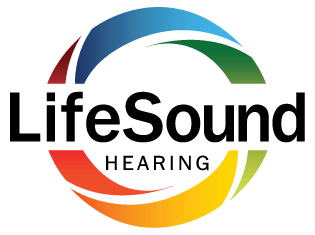When most people think of the risks linked to high blood pressure– also known as hypertension– they tend to focus on heart attacks, strokes, or kidney disease. But did you know that unmanaged hypertension can also elevate your risk for hearing loss, especially as you get older?
Presbycusis, also known as age-related hearing loss, generally starts to become noticeable in individuals aged in their 40s, 50s, or 60s. It might advance gradually and without noticeable symptoms, but the damage it creates is usually permanent. Age-related hearing loss often results from extended exposure to sound, leading to gradual degeneration of the ear’s fragile mechanisms over time. An important but often ignored factor is high blood pressure, which has the potential to destroy the fragile blood vessels in the inner ear.
What is blood pressure and why should you pay attention to?
Blood pressure measures the force of blood moving through your arteries. When this pressure is consistently too high, it puts substantial strain on your blood vessels. Extended exposure to this condition can result in vascular deterioration, causing the blood vessels to become stiff, constricted, or compromised, which in turn raises the risk of developing severe health issues, including impaired hearing.
Understanding blood pressure: breaking down two numerical components:
- The systolic reading, which is the top number, indicates the force of blood flow when the heart contracts.
- The diastolic pressure, shown by the bottom number, assesses the pressure during the heart’s resting phase.
Categories of blood pressure
-
- Normal: Less than 120/80 mm Hg
- Elevated: 120-129/<80 mm Hg
- Stage 1 hypertension is characterized as blood pressure readings of 130-139/80 -89 mm Hg.
- Stage 2 Hypertension: 140+/ 90+ mm Hg
- Severe High Blood Pressure: Exceeding 180/120 mm Hg (immediate medical attention necessary)
How high blood pressure can impact your ears
A delicate web of miniature blood vessels resides within the ears, providing the auditory system with the oxygen and nutrients it requires to work effectively. When hypertension compromises these vessels, the ear structures– especially the cochlea and tiny sensory hair cells called stereocilia– can become damaged.
The stereocilia play a crucial role in transforming sound waves into electrical signals that can be understood by the brain. Regrettably, they do not regrow once damaged. As a result, hearing loss from vascular damage caused by high blood pressure is typically irreversible.
Scientific studies show a powerful connection between elevated blood pressure and the extent of hearing loss. Individuals who have regular blood pressure levels are more likely to maintain their hearing abilities as they age, whereas individuals who have high blood pressure are more susceptible to experiencing hearing loss that can worsen over time.
Can ear pain be a sign of high blood pressure?
Even though high blood pressure can lead to significant blood vessel damage, it frequently does not manifest obvious warning signs. It is frequently known as the “silent killer” because of this. A prevalent myth is that sensations such as “hot ears” or ear pressure indicate high blood pressure. It’s probable that these symptoms are actually the outcome of fluctuations in hormone levels, high levels of stress, or intense emotional reactions.
However, some individuals with hypertension do experience intensified symptoms of tinnitus– a ringing or buzzing in the ears. If you experience chronic tinnitus or suspect hearing changes, it’s important to consult a hearing care professional for a complete assessment.
Managing blood pressure and safeguarding your hearing
Blood pressure can usually be controlled by making changes to one’s lifestyle and receiving medical care. Reducing your blood pressure could also have the added benefit of safeguarding your hearing or halting its decline.
Tips for reducing blood pressure
-
-
- Embrace a diet that supports heart health by focusing on whole grains, fruits, vegetables, lean proteins, and good fats. The DASH or Mediterranean diet is a great place to start.
- Try to take part in moderate physical activity for a minimum of 150 minutes each week to maintain regular exercise.
- Reduce sodium intake: Limit processed and fast foods, which are often high in sodium.
- Follow medication guidelines: If prescribed, take your blood pressure medication consistently as directed by your physician.
- Decrease anxiety: Make time for relaxing activities such as mindfulness exercises, mild stretches, or quiet reflection to help you unwind and find balance in your day-to-day life.
-
Managing blood pressure is crucial, but it’s equally vital to take preventive steps to protect your hearing health.
Protecting your hearing: vital steps
Besides regulating your blood pressure, these behaviors can also aid in protecting your hearing:
-
-
- Steer clear of prolonged exposure to loud noise: Use hearing protection when going to concerts, working with loud equipment, or in noisy environments.
- Think about utilizing protective gear for your ears, including earplugs or noise-canceling headphones, to lower the chances of harm to your hearing caused by loud noises.
- Regular exams with a hearing specialist can considerably improve the success of treatment and overall ear health by catching any potential issues early on.
-
Worried about hearing loss and blood pressure? Be proactiove.
If you have been diagnosed with hypertension and are experiencing indications of hearing problems– including regularly asking others to repeat what they said, struggling with conversations in loud locations, or turning up the volume on devices– it’s time to schedule an appointment with a hearing specialist.
Your auditory well-being is important. Act quickly as early action can have a substantial impact.
Reach out to us right now to begin the journey to better hearing

